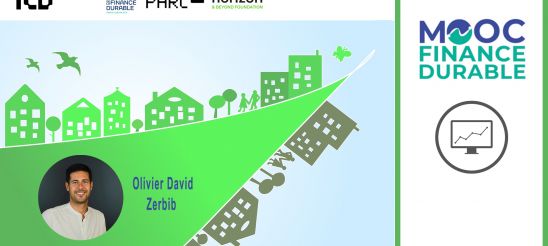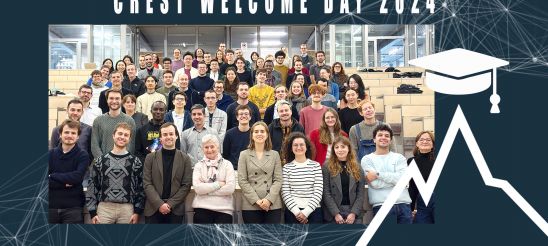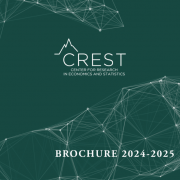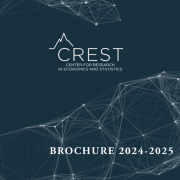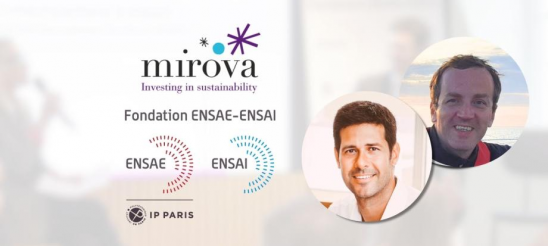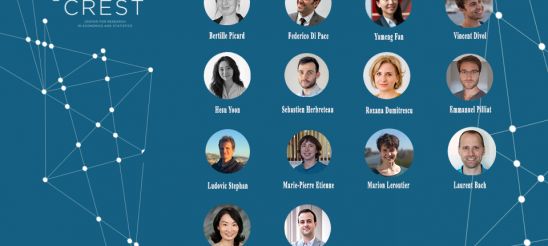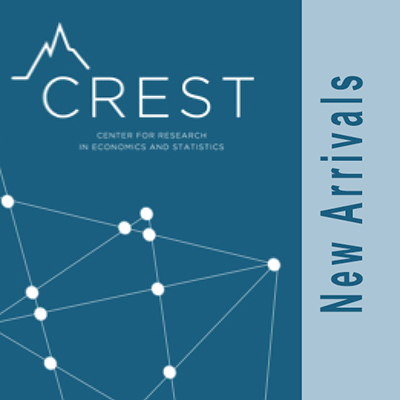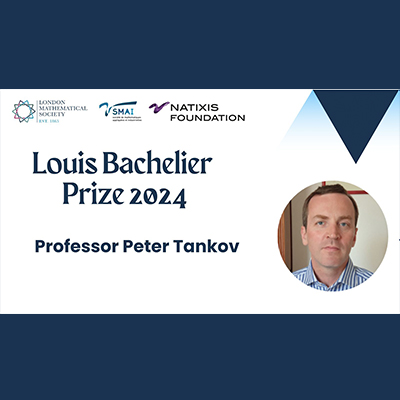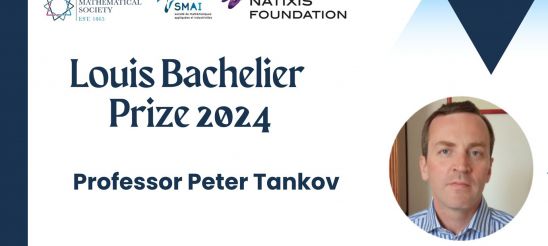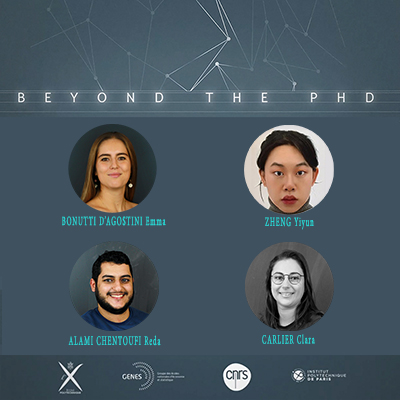Pour la première fois, l’Institut Louis Bachelier, l’Institut de la Finance Durable et le fond de dotation Horizon & Beyond s’associent dans la création d’un MOOC sur la finance durable.
Le MOOC de la finance durable répond à plusieurs problématiques actuelles, telles que les enjeux de financement de la transition en passant par les débats autour du Green Deal lors des récentes élections européennes. Il a pour vocation de couvrir l’ensemble de l’écosystème de la finance durable grâce à des présentations assurées par un panel d’intervenants de divers horizons. Ce cours s’adresse aussi bien aux étudiants qu’aux professionnels et décideurs politiques, afin de répondre à leurs attentes spécifiques.
![]() Qu’est-ce que c’est ?
Qu’est-ce que c’est ?
- Un outil de formation en ligne gratuit et ouvert à tous avec l’ambition de devenir une référence sur le marché
- Un projet élaboré à partir d’une base de connaissances fondée sur une approche scientifique
- En partenariat avec Fondation Horizon & Beyond, l’Institut de Finance Durable, l’Institut Louis Bachelier, leurs membres et des représentants de masters spécialisés
![]() Ce qu’il offre ?
Ce qu’il offre ?
- Une référence au format média, indépendante, œcuménique et applicable
- Un outil de référence pour la formation continue
- Plusieurs niveaux d’expertise
- Adapté à la formation initiale
- Une composante de formation sur des sujets actuels et non stabilisés.
![]() Quelques concepts clés que vous découvrirez dans ce MOOC !
Quelques concepts clés que vous découvrirez dans ce MOOC !
- Critères sociaux, environnementaux et de gouvernance
- Double matérialité
- Approches extra-financières
- Taxonomie et réglementation
- Produits financiers responsables
Création d’un MOOC sur la finance durable avec Olivier-David Zerbib
Pour la première fois, l’Institut Louis Bachelier, l’Institut de la Finance Durable et le fond de dotation Horizon & Beyond s’associent dans la création d’un MOOC sur la finance durable.
Le MOOC de la finance durable répond à plusieurs problématiques actuelles, telles que les enjeux de financement de la transition en passant par les débats autour du Green Deal lors des récentes élections européennes. Il a pour vocation de couvrir l’ensemble de l’écosystème de la finance durable grâce à des présentations assurées par un panel d’intervenants de divers horizons. Ce cours s’adresse aussi bien aux étudiants qu’aux professionnels et décideurs politiques, afin de répondre à leurs attentes spécifiques.
![]() Qu’est-ce que c’est ?
Qu’est-ce que c’est ?
- Un outil de formation en ligne gratuit et ouvert à tous avec l’ambition de devenir une référence sur le marché
- Un projet élaboré à partir d’une base de connaissances fondée sur une approche scientifique
- En partenariat avec Fondation Horizon & Beyond, l’Institut de Finance Durable, l’Institut Louis Bachelier, leurs membres et des représentants de masters spécialisés
![]() Ce qu’il offre ?
Ce qu’il offre ?
- Une référence au format média, indépendante, œcuménique et applicable
- Un outil de référence pour la formation continue
- Plusieurs niveaux d’expertise
- Adapté à la formation initiale
- Une composante de formation sur des sujets actuels et non stabilisés.
![]() Quelques concepts clés que vous découvrirez dans ce MOOC !
Quelques concepts clés que vous découvrirez dans ce MOOC !
- Critères sociaux, environnementaux et de gouvernance
- Double matérialité
- Approches extra-financières
- Taxonomie et réglementation
- Produits financiers responsables
Welcome Day at CREST – A Great Start to the New Academic Year
On October 10, 2024, CREST held its annual Welcome Day, an event dedicated to welcoming new members (research assistants, PhD students, postdoctoral fellows, and faculty members), offering them an introduction to the laboratory through presentations from the management team and thematic leaders.
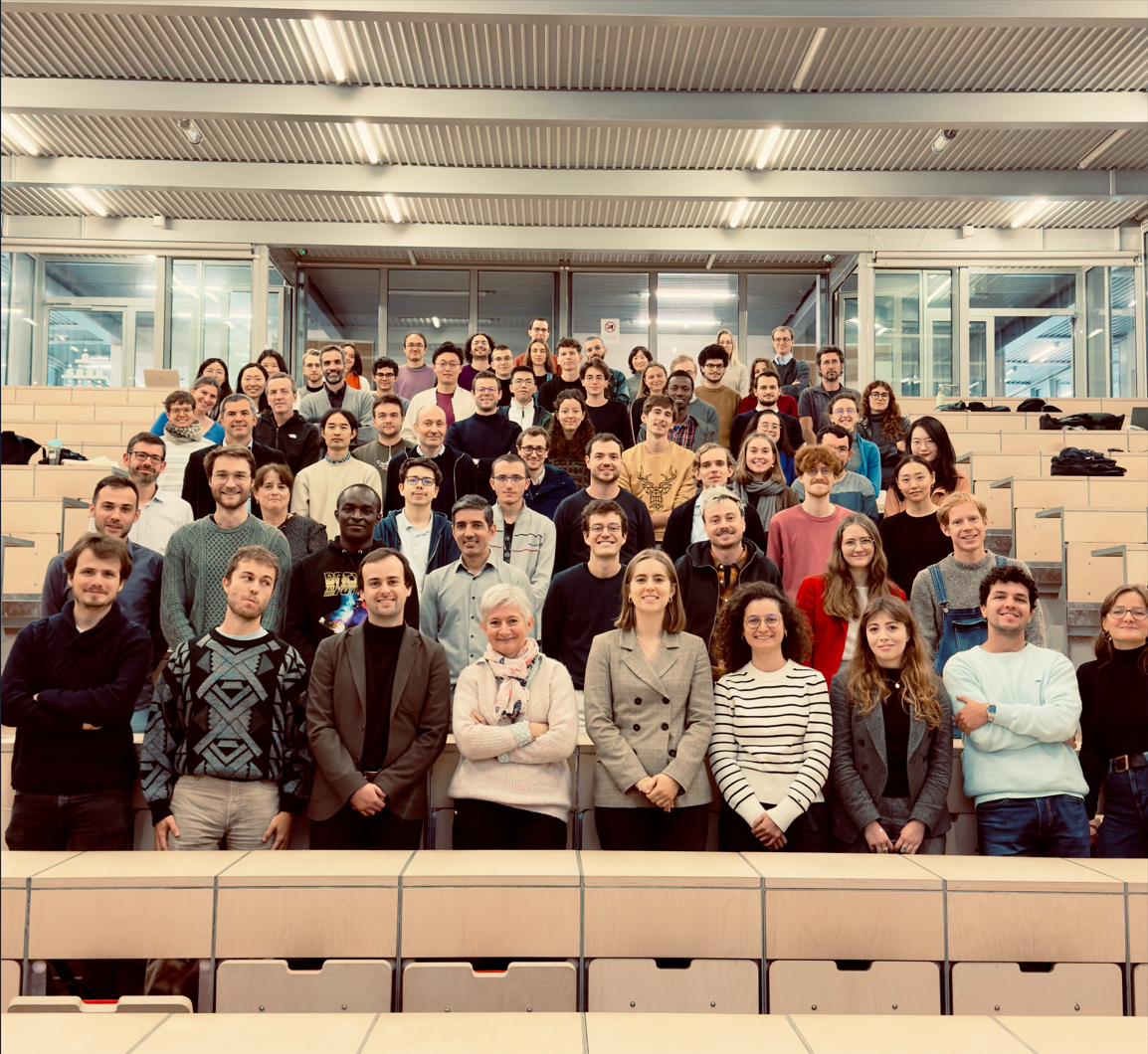
This year, all CREST sites (CREST-ENSAE Paris, CREST-ENSAI, and CREST-Télécom Paris) gathered at the ENSAE Paris campus.
The presentations provided the new members with a comprehensive understanding of CREST’s institutional environment, particularly its affiliations with the Institut Polytechnique de Paris and the University of Rennes. Each newcomer also had the opportunity to introduce themselves and their research project, fostering exchanges with both new and existing members of CREST.
The thematic leaders highlighted well-being initiatives at CREST, as well as the structure of the doctoral program at IP Paris. The event also allowed the administrative team to outline their roles and share useful recommendations.
Our scientific data engineers demonstrated Onyxia, a solution recently deployed in collaboration with GENES.
Finally, CREST PhD students shared information about various reading groups, other lab initiatives, and teaching opportunities available during the doctoral program.
This event also marked the unveiling of CREST’s new institutional brochure for the academic year, which provides an overview of the lab’s research and teaching activities, as well as its prestigious achievements.
Lancement de la Chaire Impact Investing
Lancement de la Chaire Impact Investing
Welcome at CREST: Introducing our latest recruits.
Each year, CREST goes beyond its borders to find new minds to keep on offering pioneer research. This year, CREST was able to attract new talents from all around the world (Canada, France, Italy, Switzerland, UEA, UK and USA). These new recruits bring with them a wealth of knowledge, diverse experiences, and a passion for pushing the boundaries of their respective fields. New recruits is always very much appreciated by our PhD students and students from ENSAE Paris, ENSAI and École polytechnique, where they may teach as they arrive with a different background and knowledge base.
As CREST continues to produce groundbreaking research about and for society, the arrival of these scholars marks a significant milestone in our journey. Each professor brings unique expertise that will not only enhance our ongoing projects but also open new avenues for exploration and discovery.
In this article, we will introduce you to our new researchers, delve into their backgrounds, and share their specializations that will contribute to the vibrant research environment at CREST.
Economics
Laurent Bach, Visiting Professor (ESSEC)

Interests: Entrepreneurial Finance, Corporate Governance, Household Finance, Public Economics, Political Economy
Current position: Laurent is currently and Associate Professor of Finance at ESSEC Business School
Laurent completed is PhD from Paris School of Economics in 2010
Federico Di Pace, Associate Professor (ENSAI)
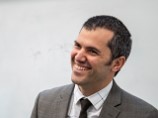
Interests: Monetary Economics, macro-labor, international economics and applied econometrics
Previous position: Federico was previously a Senior Economist at the Bank of England.
Experienced Senior Economist with a demonstrated history of working in the academia and central banking, Federico conducted economic research with particular focus on labor markets and its interaction with monetary policy. He has conducted academic policy pieces using applied theory and time series econometrics. Federico completed his PhD in Economics at Birkbeck College, University of London.
https://sites.google.com/site/federicodipace/home?authuser=0
Yameng Fan, Assistant Professor (ENSAI)

Interests: Macroeconomics of labor markets, political economy, market power and spatial economics.
Previous position: PhD in Economics from Universitat Pompeu Fabra.
Florian Grosset, Assistant Professor (ENSAE Paris, Institut Polytechnique de Paris)

Interests: Development and environmental economics with interests in labor and firms
Previous position: PhD in Sustainable Development from Columbia University
The first strand of his research focuses on labor and networks in lower-income countries. His work explores how individuals’ labor supply decisions are influenced by their social network members, primarily with field experiments. The second strand of Florian’s research focuses on firms’ responses to environmental changes. It combines insights from the natural sciences with applied micro-economic tools for causal identification.
Marion Leroutier, Assistant Professor (ENSAE Paris, Institut Polytechnique de Paris)

Interests: Applied Environmental Economics focusing on two major environmental issues, ambient air pollution and climate change.
Previous position: Postdoctoral fellow at the Institute for Fiscal Studies.
Marion’s research agenda has two angles. First, she investigates the societal cost of air pollution and the causal impact of climate and environmental policies, with an emphasis on health, productivity and distributional effects. In a second and more early-stage angle, Marion studies the determinants of support for green policies, in particular the role of social norms and identity.
Bertille Picard, Assistant Professor (ENSAI)

Interests: Econometrics, Machine Learning applied to policy evaluation and inequalities.
Previous position: PhD in Economics at Aix-Marseille School of Economics (AMSE)
Yuki Tamura, Assistant Professor (École polytechnique, Institut Polytechnique de Paris)

Interests: Micoeconomic Theory, Market Design, Social Choice and Political Economy.
Previous position: Postdoctoral Associate at the Center for Behavioral Institutional Design, NUY Abu Dhabi.
Finance-Insurance
Roxana Dumitrescu, Associate Professor (ENSAE Paris, Institut Polytechnique de Paris)

Interests: Financial Mathematics, Stochastic Control, Stochastic Differential Games, Mean-field Games, Backward Stochastic Differential Equations, Energy Markets, Machine Learning.
Previous position: Associate Professor in Financial Mathematics at King’s College of London.
Sociology
Samuel Rufat, Assistant Professor (École polytechnique, Institut Polytechnique de Paris)

Interests: Urban Geography, Urban Studies, Spatial Analysis, Socio-Economic Inequalities, Segregation, Socio-Spatial Reconfigurations, Environmental justice, …
Previous position: Lecturer at CY Cergy Université Paris Cité (Géographie-cités)
Hesu Yoon, Assistant Professor (ENSAE Paris, Institut Polytechnique de Paris)

Interests: Inequality, Poverty, and mobility, Community and Urban Sociology, Race, Gender and Class, Cultural Sociology, Social Psychology, Computational Social Science, Mixed Methods.
Previous position: PhD in Sociology at Stanford University.
Hesu’s research asks longstanding questions about spatial inequality in urban sociology: Why do some neighborhoods (or cities) grow by attracting people and capital while others do not? How does this place stratification intersect with racial and class-based inequalities? Combining experimental, computational, and qualitative approaches, she interrogates high-status consumers and place entrepreneurs – such as business owners, landlords, and travel writers – who have the power to mold physical, economic, and symbolic urban landscapes.
Statistics
Vincent Divol, Assistant Professor (ENSAE Paris, Institut Polytechnique de Paris)

Interests: Topics at the intersection of statistics and geometry, including statistical optimal transport, geometric inference and topological data analysis.
Previous position: Junior AI Fellow at Université PSL.
Marie-Pierre Etienne, Associate Professor (ENSAI)

Interests: Development of statistical methods for ecology.
Previous position: Assistant Professor at Agrocampus Ouest.
Marie-Pierre is mainly interested in the use of stochastic processes to model and infer biological processes, particularly ecological processes.
Recently she focused mainly on movement ecology application and the development of statistical methods to extract knowledge from the study of animals, but also fishing vessels movement.
Sébastien Herbreteau, Assistant Professor (ENSAI)

Interests: Statistical and Machine Learning Methods for image processing, inverse problems, optimization and mathematical understanding of neural networks.
Previous position: Postdoctoral Fellow in the Biomedical Imaging Group at the Ecole Polytechnique Fédérale de Lausanne.
Emmanuel Pilliat, Assistant Professor (ENSAI)

Interests: Machine Learning and High-Dimensional Statistics.
Previous position: Postdoctoral Fellow at ENS Lyon.
Ludovic Stephan, Assistant Professor (ENSAI)

Interests: Random graphs, inference problems, machine learning theory.
Previous position: Postdoctoral Fellow in the idePHICS lab at Ecole Polytechnique Fédérale de Lausanne.
My research interests involve the rigorous study of statistical-physics inspired methods, from belief propagation to replica equations.
Welcome at CREST: Introducing our latest recruits.
Each year, CREST goes beyond its borders to find new minds to keep on offering pioneer research. This year, CREST was able to attract new talents from all around the world (Canada, France, Italy, Switzerland, UEA, UK and USA). These new recruits bring with them a wealth of knowledge, diverse experiences, and a passion for pushing the boundaries of their respective fields. New recruits is always very much appreciated by our PhD students and students from ENSAE Paris, ENSAI and École polytechnique, where they may teach as they arrive with a different background and knowledge base.
As CREST continues to produce groundbreaking research about and for society, the arrival of these scholars marks a significant milestone in our journey. Each professor brings unique expertise that will not only enhance our ongoing projects but also open new avenues for exploration and discovery.
In this article, we will introduce you to our new researchers, delve into their backgrounds, and share their specializations that will contribute to the vibrant research environment at CREST.
Economics
Laurent Bach, Visiting Professor (ESSEC)

Interests: Entrepreneurial Finance, Corporate Governance, Household Finance, Public Economics, Political Economy
Current position: Laurent is currently and Associate Professor of Finance at ESSEC Business School
Laurent completed is PhD from Paris School of Economics in 2010
Federico Di Pace, Associate Professor (ENSAI)

Interests: Monetary Economics, macro-labor, international economics and applied econometrics
Previous position: Federico was previously a Senior Economist at the Bank of England.
Experienced Senior Economist with a demonstrated history of working in the academia and central banking, Federico conducted economic research with particular focus on labor markets and its interaction with monetary policy. He has conducted academic policy pieces using applied theory and time series econometrics. Federico completed his PhD in Economics at Birkbeck College, University of London.
https://sites.google.com/site/federicodipace/home?authuser=0
Yameng Fan, Assistant Professor (ENSAI)

Interests: Macroeconomics of labor markets, political economy, market power and spatial economics.
Previous position: PhD in Economics from Universitat Pompeu Fabra.
Florian Grosset, Assistant Professor (ENSAE Paris, Institut Polytechnique de Paris)

Interests: Development and environmental economics with interests in labor and firms
Previous position: PhD in Sustainable Development from Columbia University
The first strand of his research focuses on labor and networks in lower-income countries. His work explores how individuals’ labor supply decisions are influenced by their social network members, primarily with field experiments. The second strand of Florian’s research focuses on firms’ responses to environmental changes. It combines insights from the natural sciences with applied micro-economic tools for causal identification.
Marion Leroutier, Assistant Professor (ENSAE Paris, Institut Polytechnique de Paris)

Interests: Applied Environmental Economics focusing on two major environmental issues, ambient air pollution and climate change.
Previous position: Postdoctoral fellow at the Institute for Fiscal Studies.
Marion’s research agenda has two angles. First, she investigates the societal cost of air pollution and the causal impact of climate and environmental policies, with an emphasis on health, productivity and distributional effects. In a second and more early-stage angle, Marion studies the determinants of support for green policies, in particular the role of social norms and identity.
Bertille Picard, Assistant Professor (ENSAI)

Interests: Econometrics, Machine Learning applied to policy evaluation and inequalities.
Previous position: PhD in Economics at Aix-Marseille School of Economics (AMSE)
Yuki Tamura, Assistant Professor (École polytechnique, Institut Polytechnique de Paris)

Interests: Micoeconomic Theory, Market Design, Social Choice and Political Economy.
Previous position: Postdoctoral Associate at the Center for Behavioral Institutional Design, NUY Abu Dhabi.
Finance-Insurance
Roxana Dumitrescu, Associate Professor (ENSAE Paris, Institut Polytechnique de Paris)

Interests: Financial Mathematics, Stochastic Control, Stochastic Differential Games, Mean-field Games, Backward Stochastic Differential Equations, Energy Markets, Machine Learning.
Previous position: Associate Professor in Financial Mathematics at King’s College of London.
Sociology
Samuel Rufat, Assistant Professor (École polytechnique, Institut Polytechnique de Paris)

Interests: Urban Geography, Urban Studies, Spatial Analysis, Socio-Economic Inequalities, Segregation, Socio-Spatial Reconfigurations, Environmental justice, …
Previous position: Lecturer at CY Cergy Université Paris Cité (Géographie-cités)
Hesu Yoon, Assistant Professor (ENSAE Paris, Institut Polytechnique de Paris)

Interests: Inequality, Poverty, and mobility, Community and Urban Sociology, Race, Gender and Class, Cultural Sociology, Social Psychology, Computational Social Science, Mixed Methods.
Previous position: PhD in Sociology at Stanford University.
Hesu’s research asks longstanding questions about spatial inequality in urban sociology: Why do some neighborhoods (or cities) grow by attracting people and capital while others do not? How does this place stratification intersect with racial and class-based inequalities? Combining experimental, computational, and qualitative approaches, she interrogates high-status consumers and place entrepreneurs – such as business owners, landlords, and travel writers – who have the power to mold physical, economic, and symbolic urban landscapes.
Statistics
Vincent Divol, Assistant Professor (ENSAE Paris, Institut Polytechnique de Paris)

Interests: Topics at the intersection of statistics and geometry, including statistical optimal transport, geometric inference and topological data analysis.
Previous position: Junior AI Fellow at Université PSL.
Marie-Pierre Etienne, Associate Professor (ENSAI)

Interests: Development of statistical methods for ecology.
Previous position: Assistant Professor at Agrocampus Ouest.
Marie-Pierre is mainly interested in the use of stochastic processes to model and infer biological processes, particularly ecological processes.
Recently she focused mainly on movement ecology application and the development of statistical methods to extract knowledge from the study of animals, but also fishing vessels movement.
Sébastien Herbreteau, Assistant Professor (ENSAI)

Interests: Statistical and Machine Learning Methods for image processing, inverse problems, optimization and mathematical understanding of neural networks.
Previous position: Postdoctoral Fellow in the Biomedical Imaging Group at the Ecole Polytechnique Fédérale de Lausanne.
Emmanuel Pilliat, Assistant Professor (ENSAI)

Interests: Machine Learning and High-Dimensional Statistics.
Previous position: Postdoctoral Fellow at ENS Lyon.
Ludovic Stephan, Assistant Professor (ENSAI)

Interests: Random graphs, inference problems, machine learning theory.
Previous position: Postdoctoral Fellow in the idePHICS lab at Ecole Polytechnique Fédérale de Lausanne.
My research interests involve the rigorous study of statistical-physics inspired methods, from belief propagation to replica equations.
Congratulations to Peter Tankov, who has been awarded the Louis Bachelier Prize 2024.
Congratulations to Peter Tankov, who has been awarded the Louis Bachelier Prize 2024.
Congratulations to Peter Tankov, who has been awarded the Louis Bachelier Prize 2024.
Congratulations to Peter Tankov, who has been awarded the Louis Bachelier Prize 2024.
Beyond the PhD – CREST Series 2: How would you define a PhD?
Last year, CREST introduced a new series of videos on the PhD theme. Léa Bou Sleiman & Martin Mugnier were interviewed for this first episode of “Beyond the PhD”. The 4th year economics PhD students present their career at CREST and their participation in the International Job Market.
In 2024, the Beyond the PhD series is focused on the definition of a PhD.
In doing so, four PhD students from CREST have participated in this interview series:
- Reda Alami Chentoufi, 1st year PhD student in Finance-Insurance (CREST-GENES)
- Emma Bonutti d’Agostini, 1st year PhD student in Sociology (CREST-GENES)
- Yiyun Zheng, 2nd year PhD student in Economics (CREST-Ecole polytechnique)
- Clara Carlier, 3rd year PhD student in Statistics (CREST-GENES)
With the participation of Prof. Emmanuelle Taugourdeau, Research Director at CNRS and Deputy Director at CREST, all four PhD students answered some questions about the PhD program: how would they describe it, what is of importance in a PhD and their recommendations to future PhD students.
All videos are now available on the CREST’s YouTube account.
We want here to promote the interview highlights that key points of all interviews in one.
Below, you will find all videos available in the scope of the Beyond the PhD video series 2.


